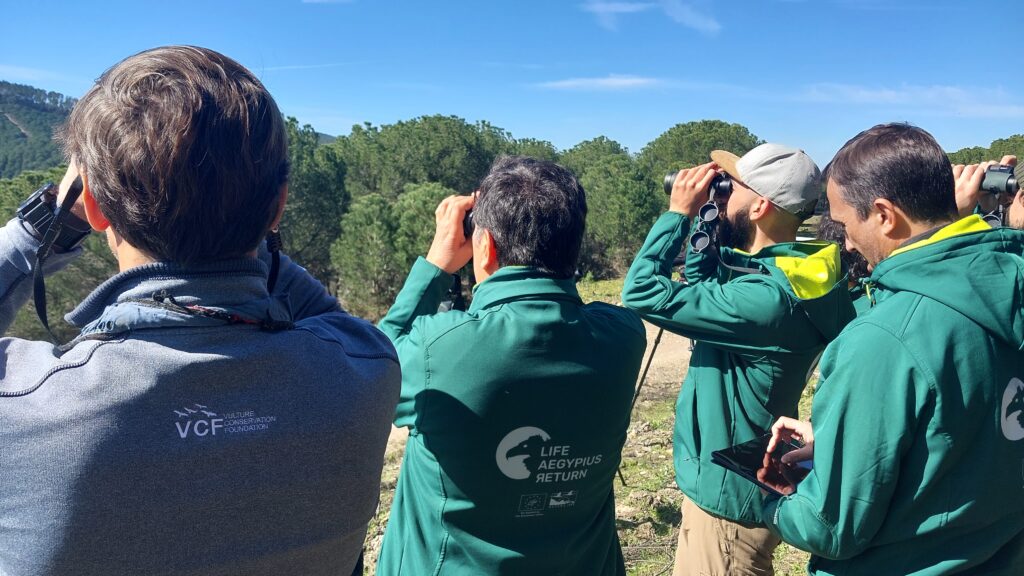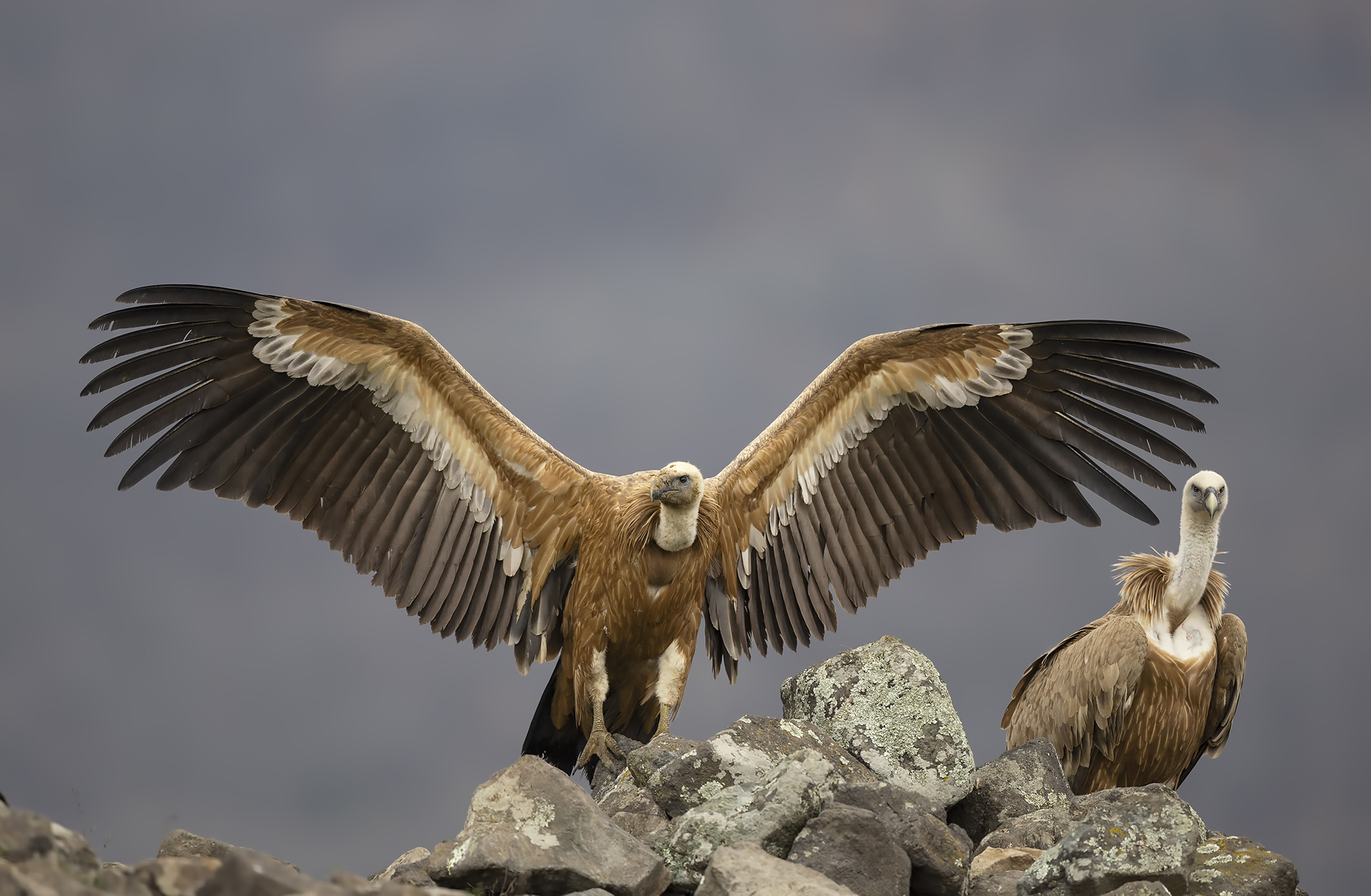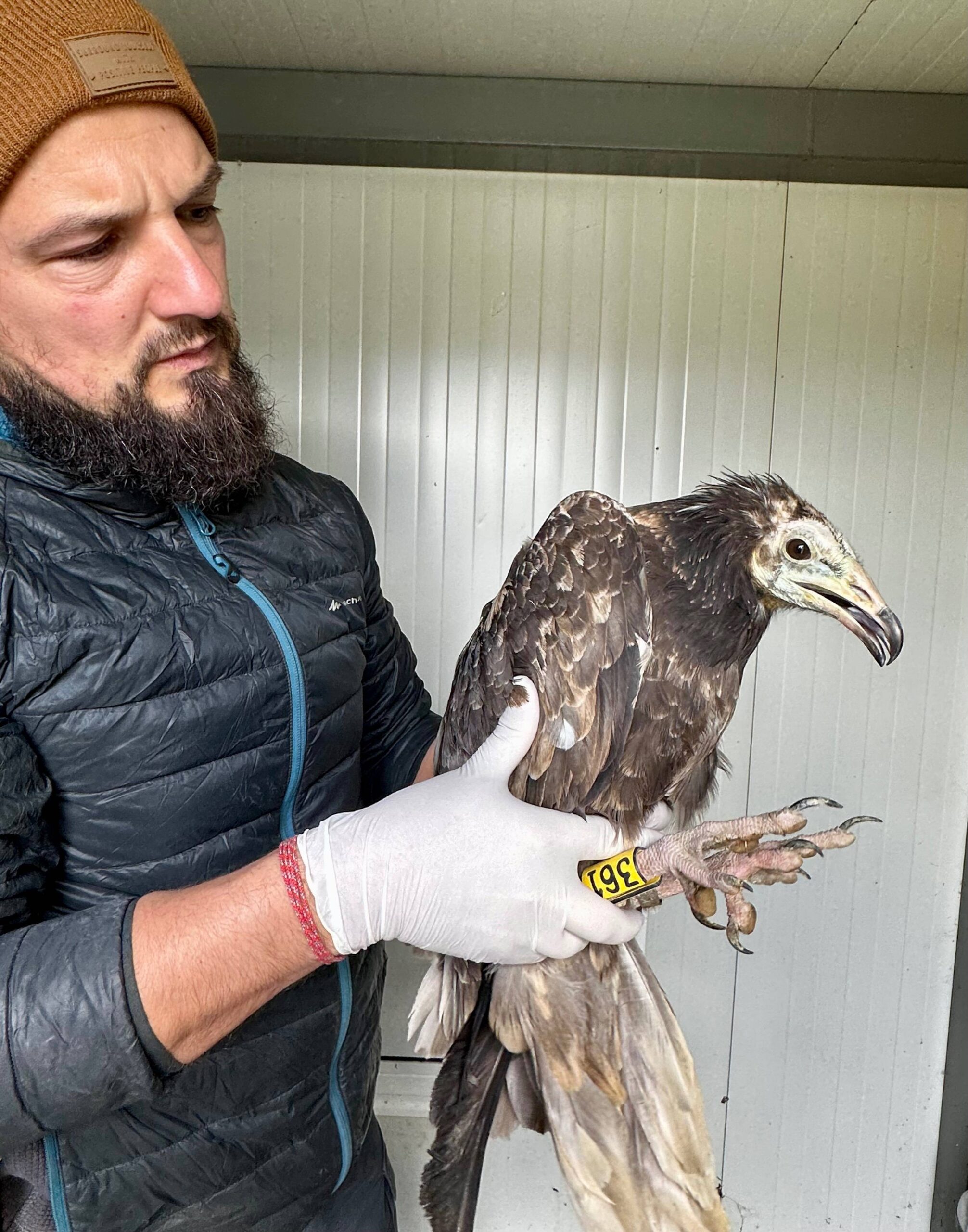By 2048, vultures could contribute more than 18 million euros to the Portuguese economy.
The first study quantifying the ecosystem services provided by vultures in Portugal has just been published. Conducted within the framework of the LIFE Aegypius Return project, the study analyses the benefits that three vulture species – Cinereous, Griffon and Egyptian vultures – provide to Portuguese society.

A pioneering study in Portugal
Conserving a species or taxonomic group requires the involvement of many sectors and the wider community. Understanding the importance of that species or group, often unfairly associated with myths or negative perceptions, as is the case with vultures, is essential to building a shared and effective understanding for its protection. A study developed and now shared by the LIFE Aegypius Return project has assessed and quantified some of the ecosystem services provided by the three species of vultures that breed in Portugal (Cinereous Vulture Aegypius monachus, Griffon Vulture Gyps fulvus and Egyptian Vulture Neophron percnopterus): decreasing the need for livestock carcass transport and incineration costs (SIRCA service), reducing the associated greenhouse gas emissions, and contributions to ecotourism revenue. It is the first study of its kind conducted with vulture populations in Portugal.
The study estimated that, in 2023, the services provided by vultures in Portugal potentially represented over €668,000 in economic benefits. The projection up to 2048 – the year by which, if current conservation programmes continue, the Cinereous Vulture population is expected to reach its carrying capacity in Portugal – points to a potential cumulative value exceeding €18.6 million, combining avoided costs and revenues linked to ecotourism.
All calculations can be consulted in the document available on the LIFE Aegypius Return project website.
Read the ecosystem services report
Vultures and ecosystem services
Put simply, ecosystem services are the benefits people obtain from biodiversity and the functioning of ecosystems – from goods and materials such as food and raw materials to fertile soils and spiritual fulfilment.
Vultures provide us with numerous services. As obligate scavengers, they play a crucial role in nutrient recycling, in removing contaminants from soil and water, and in regulating the spread of disease. By consuming dead animals, they help limit disease transmission by removing decaying organic matter from the environment and indirectly controlling populations of facultative scavengers and potential vectors of infectious diseases, such as feral dogs and rats.
Their ability to quickly consume livestock carcasses can significantly reduce the greenhouse gas emissions associated with carcass collection and transport to processing facilities. In 2023, vulture populations in Portugal are estimated to have consumed close to a thousand tonnes of meat from extensively farmed livestock that died on farms. Through this consumption, they are estimated to have avoided over €313,000 in carcass transport and processing costs – corresponding to nearly 1,200 tonnes of carbon dioxide avoided and estimated environmental damage of approximately €163,000.
Vultures also provide cultural and spiritual services dating back thousands of years, as well as recreational services in the form of ecotourism, especially for birdwatchers and nature photographers. Observing vultures in their natural habitat is highly valuable, and ecotourism centred around vulture breeding and feeding areas can generate important sources of local income. The study presents very conservative estimates, putting the ecotourism revenues linked to vulture watching in 14 municipalities along Portugal’s border region at around €192,000 per year – a figure with significant potential for growth.

Much more than economics
The aim of this newly published study is to highlight the benefits provided by healthy vulture populations in our territory in a way that is more easily understood. It is a tool to communicate the relevance of conserving scavenger birds to decision-makers, professionals such as livestock farmers, tourists and the general public. The estimated monetary values reinforce the notion that protecting vultures contributes to ecosystem health, human well-being, and our shared natural heritage – while also bringing financial benefits.
However, the study’s authors underline that these values represent only a quantifiable fraction of the vultures’ real contribution to society. The value of these birds – like biodiversity in general – for human well-being also encompasses ethical and intangible dimensions, and far exceeds any monetary estimate. Their ecological, cultural and symbolic importance cannot be fully captured by economic parameters.
One thing is certain: healthy, functional ecosystems – in which vultures play an essential role – bring diverse benefits for everyone!

About LIFE Aegypius Return

The LIFE Aegypius Return project is co-financed by the European Union’s LIFE programme. Its success depends on the involvement of all the relevant stakeholders, and the collaboration of the partners: the Vulture Conservation Foundation (VCF), the coordinating beneficiary, and the local partners Palombar – Conservação da Natureza e do Património Rural, Herdade da Contenda, Sociedade Portuguesa para o Estudo das Aves, Liga para a Protecção da Natureza, Associação Transumância e Natureza, Fundación Naturaleza y Hombre, Guarda Nacional Republicana and Associação Nacional de Proprietários Rurais Gestão Cinegética e Biodiversidade.




